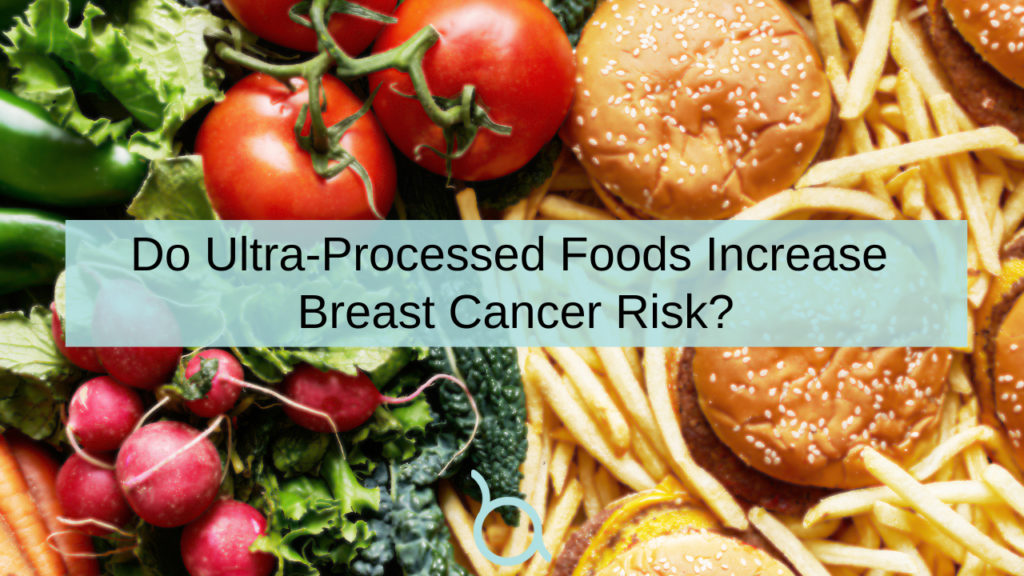Ultra-Processed Foods and Breast Cancer: Is There a Link?

As much as 40% of cancers are estimated to be linked to lifestyle risk factors such as smoking, alcohol use, physical inactivity and diet. Several studies suggest a link between ultra-processed foods (UPFs) and an increased risk of breast cancer. A recent study published in the journal Clinical Nutrition supports a clinically relevant association between UPFs and an increased risk in several different cancers including: breast, colorectal, prostate, pancreatic, chronic lymphocytic leukemia and central nervous system tumors.
What are ultra-processed foods?
Ultra-processed foods are foods that have undergone extensive processing and contain a high amount of added sugars, fats, and other additives. Examples of ultra-processed foods include soda, energy/sport drinks, fast food, processed meats like deli meets and hot dogs, frozen dinners, chips, crackers, and sugary cereals. These foods are often high in calories and low in nutrients, making them a poor choice for a healthy diet.
Ultra-processed foods and breast cancer
Several studies suggest that consuming a diet of highly processed foods may increase the risk of developing breast cancer. Women who consume a diet high in ultra-processed foods have a higher risk of developing breast cancer than those who follow a diet rich in fruits, vegetables, and whole grains. The reason for this increased risk is thought to be due to the high levels of additives and preservatives found in ultra-processed foods. These additives have been linked to inflammation, oxidative stress, and other factors that can contribute to the development of cancer.
Nutritional tips for a healthier diet
To reduce the risk of developing cancer as much as possible, it is essential to consume a diet rich in whole foods and low in ultra-processed foods. Here are some tips to help you eat more healthily:
- Focus on whole foods: Fill your plate with fruits, vegetables, whole grains, and lean proteins.
- Read labels: When shopping for packaged foods, be sure to read the labels carefully. Look for products that are low in added sugars, saturated fats, and other unhealthy additives.
- Cook at home as much as you can: Preparing meals at home allows you to make sure the ingredients are healthy. Experiment with new recipes and try to incorporate more whole foods into your diet.
- Limit processed foods: While it may be difficult to eliminate processed foods entirely, try to limit your intake as much as possible. Choose healthier snacks like fruits, nuts, and seeds, and choose whole-grain options when buying bread, pasta, and other grains.
While the link between ultra-processed foods and breast cancer is still being studied, it is essential for you and your family to eat a healthy diet rich in whole foods to reduce the risk of developing cancer.






